Click on images to enlarge

infestation (Photo: Sheldon Navie)
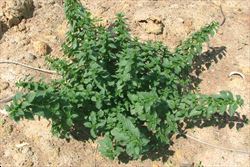
habit (Photo: Sheldon Navie)
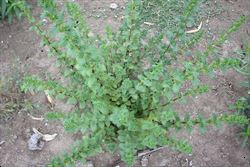
habit (Photo: Sheldon Navie)
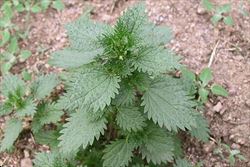
the small broad leaves with sharply-toothed margins (Photo: Jackie Miles)

close-up of relatively long leaf stalks and short clusters of flowers (Photo: Sheldon Navie)
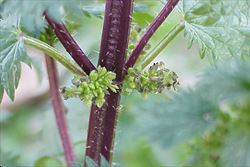
close-up of reddish stems with long stinging hairs and short clusters of immature fruit (Photo: Sheldon Navie)
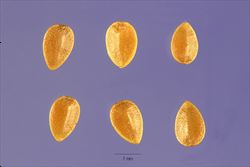
close-up of seeds (Photo: Jose Hernandez at USDA PLANTS Database)
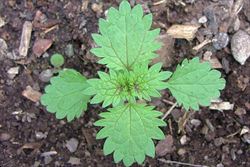
young plant (Photo: Sheldon Navie)

the similar native stinging nettle (Urtica incisa), with longer and often narrower leaves (Photo: Sheldon Navie)

native stinging nettle (Urtica incisa) also has much longer flower clusters that are usually unbranched (Photo: Sheldon Navie)
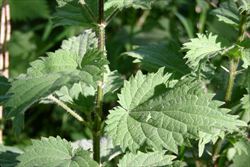
the leaves and stems of the less common stinging nettle (Urtica dioica), with fine hairs between the larger stinging hairs (Photo: Trevor James)
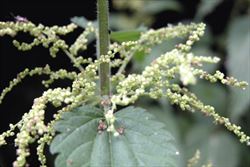
stinging nettle (Urtica dioica) has elongated flower clusters that are usually branched (Photo: Steve Adkins)
Scientific Name
Urtica urens L.
Family
Urticaceae
Common Names
annual nettle, annual stinging nettle, burning nettle, bush nettle, bush stinging nettle, common stinging nettle, dog nettle, dwarf nettle, dwarf stinging nettle, English stinging nettle, lesser nettle, lesser stinging nettle, nettle, small nettle, small stinging nettle, small stinging-nettle, small-leaves stinging nettle, stinging nettle
Origin
This species has a very widespread (i.e. cosmopolitan) distribution, and its exact origin is obscure. However, it is thought to be native to parts of Europe and/or the Mediterranean region.
Naturalised Distribution
Widely naturalised, particularly in southern and eastern Australia. It is common in south-eastern Queensland, eastern and southern New South Wales, the ACT, Victoria, Tasmania, south-eastern South Australia and south-western Western Australia. Less common or occasionally naturalised in some parts of Northern Territory and in other parts of Queensland, New South Wales, South Australia and Western Australia. Also naturalised on Lord Howe Island and Norfolk Island.
Widely naturalised overseas, including in large parts of North America (i.e. Canada and the USA).
Notes
While small nettle (Urtica urens) is mainly a weed of agricultural areas and habitation, it is sometimes also regarded as environmental weed in Victoria, Queensland and Western Australia.

